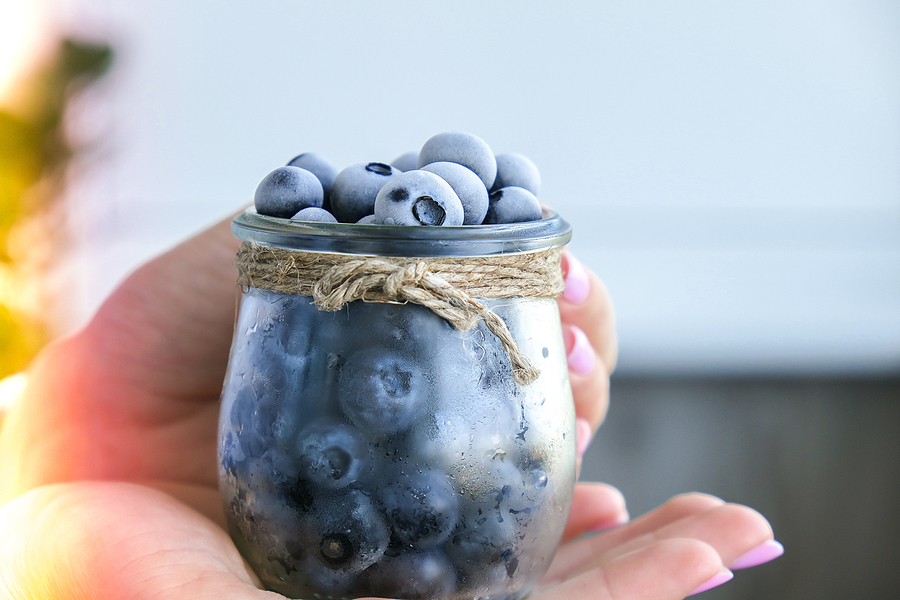Have you heard of kombucha? This fizzy fermented tea beverage has enjoyed growing popularity in recent years – and with good reason! There are some amazing benefits you can gain from making kombucha a part of your regular routine.
While it used to be that you could only find kombucha in health food stores, these days it’s everywhere! My son likes to buy his at Trader Joes, but recently there he noticed the supply depleting quicker week-by-week. One time, he went and there were none available for him – the store had been cleaned out of his favorite kombucha. When he asked a cashier about it, she sympathized with him and told him that it caught them by surprise as well. A week later, he learned they had to buy 3x their usual supply just to keep up with the demands of the customers!
Why is it that so many people jumping on the kombucha bandwagon? Let’s take a look at some of the health benefits of kombucha and great ways this tasty beverage can keep you healthy and full of energy.
What is Kombucha?
The exotic name makes this beverage sound far more mysterious than it actually is. And because one of the key elements in making it resembles a mushroom, there’s some confusion; some people call kombucha “mushroom tea” even though there are no mushrooms involved in its production.
Kombucha is a fermented beverage made with tea, sugar, and a symbiotic culture of bacteria and yeast (called a SCOBY). While black tea is most often used to make kombucha, it can also be made from green tea or herbal tea to both vary the flavor and reduce the amount of caffeine in the beverage.
Kombucha is touted as a functional beverage that may enhance your health in a variety of ways. To hear some people talk, it’s a cure-all for anything that ails you. While I wouldn’t go that far, I do believe that there are a lot of good reasons to drink kombucha regularly; one of the most important is the probiotic boost it can give your gut.
Kombucha becomes carbonated once fermented, and contains vinegar, probiotics, B vitamins, enzymes and high concentration of acetic, gluconic, and lactic acids.
A Brief History of Kombucha
There are a lot of theories about the origins of kombucha, but the most accepted story has it originating in the Northeastern region of China, called Manchuria. It may be impossible to trace the origins definitively, but it’s clear that kombucha has been around for a very long time.
German scientists referenced it in their work as long ago as the 1850s, and there’s evidence that although it’s popularity didn’t spike in the United States until recent decades, it’s been consumed in other cultures for centuries.
In the early 1990s kombucha received some attention due to a book, Kombucha: The Miracle Fungus, by a German-born author, Harald Tietze. In his book, Tietze made a range of claims about the benefits of kombucha based on anecdotal evidence and dubious studies. Also in the early 1990s, Laurel Farms began selling SCOBYs via mail order. Kombucha has experienced highs and lows since then. Two incidents of potential adverse reactions – including one that resulted in death – were investigated by the CDC and the FDA, but no conclusive link was found between the symptoms and kombucha.
In the early 2000s, kombucha tea hit the stores in a bigger way, in both pasteurized and raw forms. Proponents of the health benefits insist – and I agree – that the raw form is where you’ll see results, particularly when it comes to gut health. Pasteurization kills the bacteria that helps balance the gut, so while the pasteurized form may be just as tasty, it won’t help your health.
The pasteurization debate wasn’t the only obstacle facing commercially produced kombucha — in 2010, right here in Maine, bottles sent for testing at the University of Maine’s food sciences lab found that the alcohol levels ranged from 0.5 percent (which is the limit for marketing a beverage as non-alcholic) to 2.5 percent. Raw brands were pulled off the shelves and several manufacturers closed their doors. But the industry survived that blow, and one that came shortly after when a woman sued one of the major manufacturer’s, GT’s Kombucha, for false advertising after learning that there was no scientific evidence to support the health claims they touted.
Health Benefits of Kombucha
What Can Kombucha Do for My Gut Health?
It’s true that human studies aren’t available to support claims that kombucha is a “wonder drink” with the power to cure disease. And while I don’t think it’s a “miracle cure,” I know that anecdotal evidence of how patients feel, along with animal studies and research around some of the specific elements in kombucha (like antioxidants and B vitamins), is enough to convince me. If people feel better after adding something to their daily routine, and they are swapping out a less healthy option like soda or diet soda, I say go for it!
One of the most positive results from drinking kombucha is the probiotic benefit to your gut. As I’ve said before, gut health is connected to so many other body systems that it’s essential you have a well balanced gut microbiome.
Kombucha is rich in probiotics, the healthy bacteria you need to keep the bacteria in your gut balanced. These bacteria absorb nutrients and fight infection, thus supporting your overall immune system.
In addition to the probiotics, kombucha also contains high levels of important acids and enzymes. A study in mice showed that kombucha may prevent and heal stomach ulcers.
Kombucha can also help keep candida yeast at bay. An overgrowth of candida can cause a fungal infection that causes not only digestive symptoms, but also exhaustion, fuzzy thinking, hormonal imbalance, chronic sinus issues and much more. That’s why keeping candida in check is so important! The “good” bacteria in kombucha can help drive candida levels to normal, helping to restore balance to your system.
Drinking Kombucha Can Also Help in These 5 Ways
While the probiotic elements make gut health an obvious benefit from consuming this fermented beverage, several other benefits may also be realized. While studies on kombucha are limited to animals at this point, research on other vitamins and minerals that kombucha contains support these ideas. Let’s take a look at five benefits that might surprise you!
1. Natural Liver Support
Your liver is responsible for much of your body’s natural detoxification. That means it needs as much support as it can get. Kombucha has high amounts of glucaric acid, which supports the liver and its detoxification systems. The antioxidants in kombucha also may protect the liver from oxidative stress.
2. Joint Health
Many people who experience joint pain or stiffness have heard of glucosamine, an amino sugar purported to help keep joints healthy by increasing hyaluronic acid and lubricating joints. Kombucha has naturally occurring glucosamine, which means the drink might help keep you moving freely, perhaps even working to prevent arthritis.
3. Mental Health
Your gut is intricately connected to your brain, which means supporting your gut can also help keep depression and anxiety at bay. When too much bad bacteria penetrates your gut inflammation rises, impacting mood. Kombucha is also high in B vitamins, especially B12, which can increase energy levels and elevate mood.
4. Heart Health
In animal studies, kombucha has been found to lower LDL cholesterol and increase HDL cholesterol. Proper balance of cholesterol levels is essential for improved cardiovascular health.
5. Weight Management
Weight control is often a top priority for my clients, and many of the women I know. A 2000 study in mice showed that kombucha inhibited weight gain in the mice, while also changing appetite behavior. Other animal studies also showed that kombucha can encourage a lower calorie diet. Even if research on the impact of kombucha on weight is limited, many varieties contain 60 calories or less per cup, making it a light, refreshing alternative to fruit juices, soda or sports drinks.
Now that you understand what kombucha could do for you, where can you get some?
Brewing Your Own Kombucha
Kombucha is commercially available in a wide range of places, but the time-honored tradition of brewing your own also lives on. If you do purchase your kombucha in stores, make sure you are getting the unpasteurized kind. Pasteurization wipes out the probiotic benefits!
The basic process of making kombucha is straightforward, but like any recipe, may take some trial and error to get it just the way you want it.
In a nutshell, you’ll need to brew tea, sweeten it, add the SCOBY, then let the drink ferment in an open jar (protected by a thin cloth or coffee filter to keep contaminants out). A second fermentation period in smaller jars will produce the bubbles commonly associated with kombucha, though it can be consumed after the first fermentation as well. There are plenty of detailed tutorials available online to get you started.
Important Considerations
I find it ironic that people will consume packaged processed foods filled with chemicals without a second thought, but question natural choices like kombucha. While there have been a few rare cases of adverse reactions to drinking too much kombucha, it’s like any food or drink: you have to pay attention to how your body tolerates it, and moderation is key.
There are some categories of people who should be more cautious, including pregnant women and those with a compromised immune system. Before starting anything new, it’s a good idea to discuss it with your healthcare provider.
Kombucha does contain caffeine, sugar, and a small amount of alcohol – it’s important to know how your body reacts to these substances before making kombucha a part of your daily routine. Nutrition facts and ingredients can vary widely, so read labels carefully when purchasing kombucha from a retailer. Sugar content is generally very low, since the sugar in the recipe serves primarily as food for the bacteria rather than as a sweetener.
One concern that may be worth noting is the potential for tooth damage due to the acid content in kombucha. You can avoid overexposing your teeth to this acid by drinking your daily dose all at once, and brushing your teeth or rinsing your mouth after consuming kombucha.
Of course, homebrewing isn’t regulated so contamination is perhaps more likely, which could produce adverse side effects. Be sure you have a clean working area, sterile equipment, and high quality ingredients if you are making your own.
Start Your Day with Kombucha and Help Your Gut Thrive!
So many of the people I talk to are looking for ways to take control of their own health. Starting your day with a glass of kombucha instead of coffee or soda could be one small change that reaps big benefits, especially for your gut health!
References:
https://draxe.com/7-reasons-drink-kombucha-everyday/
https://en.wikipedia.org/wiki/Kombucha
https://www.eater.com/2018/5/23/17208400/kombucha-health-benefits-studies-history
https://www.nytimes.com/1994/12/28/garden/a-magic-mushroom-or-a-toxic-fad.html








